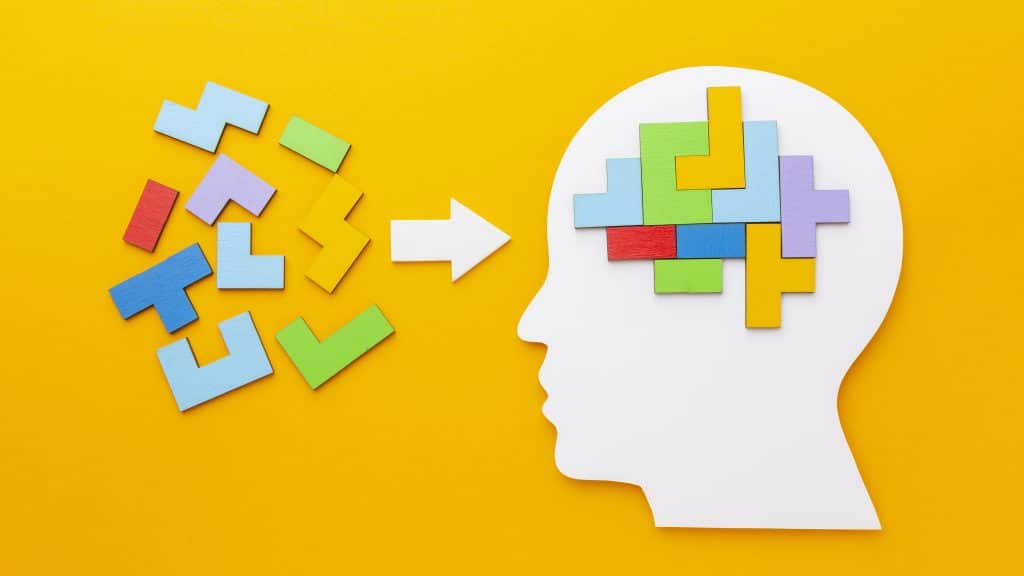Repetition Enhances Memory and Understanding
Ella Knight August 1, 2025
In today’s fast-paced world, where information overload is a common issue, it’s easy to overlook one of the most powerful tools for improving memory and comprehension: repetition. From the classroom to the workplace and beyond, repetition plays a crucial role in reinforcing knowledge, improving recall, and increasing understanding of complex topics. Whether you’re trying to memorize a presentation or master a new skill, repetition is your secret weapon.
This article will explore how repetition enhances memory and understanding, diving into the science behind it, practical strategies for incorporating it into daily life, and how it can lead to success in various fields. We’ll also discuss emerging trends, like how repetition-based learning is being integrated into modern technologies, educational practices, and professional development.

The Science Behind Repetition and Memory
Repetition: A Fundamental Learning Tool
Repetition is the process of revisiting information multiple times to reinforce learning and increase retention. According to research from Psychological Science (2023), repetition is one of the most effective methods for transferring information from short-term to long-term memory. When we repeat something multiple times, the neural pathways in our brain are strengthened, making it easier to recall information later.
This concept is based on the spacing effect, which suggests that information is better retained when it is repeated at intervals over time, rather than in a single, continuous session. Spacing out repetitions gives the brain time to consolidate information and form stronger memories.
How Repetition Works in the Brain
When you repeat an action or piece of information, your brain forms a connection between neurons—a process known as neuroplasticity. This is the brain’s ability to reorganize itself by forming new neural connections in response to learning. As you continue to repeat information, the neural connections become stronger, making it easier to retrieve that information when needed.
Studies from Harvard University (2022) show that repetition increases the synaptic strength between neurons, leading to enhanced learning and memory recall. This is why repeating a piece of information, whether through reading, writing, or verbally reciting, helps commit it to memory.
The Role of Repetition in Deepening Understanding
Repetition Facilitates Comprehension
While repetition is often associated with rote memorization, it also plays a significant role in improving comprehension. When you repeatedly expose yourself to a concept or idea, you start to see connections and relationships between different pieces of information. This deeper understanding allows you to apply knowledge more effectively in various contexts.
For example, in math or science, repeated exposure to formulas or principles allows you to understand the reasoning behind them, not just memorize them. Similarly, in literature, revisiting a passage multiple times can reveal new layers of meaning, fostering a more profound understanding of the material.
Active vs. Passive Repetition
Not all repetition is created equal. Active repetition—where you engage with the material, summarize it, or teach it to someone else—is far more effective than passive repetition, such as just reading over notes. According to The University of California (2023), active repetition requires you to process the information at a deeper level, leading to better understanding and long-term retention.
Practical Ways to Incorporate Repetition for Memory Enhancement
1. Spaced Repetition: The Key to Long-Term Retention
Spaced repetition is a technique that involves revisiting material at increasing intervals. This method is based on the idea that the longer you wait between repetitions, the stronger the memory trace becomes. There are several tools and apps, such as Anki and Quizlet, that use spaced repetition algorithms to help learners memorize information efficiently.
By using these tools, you can review the same material over a longer period, ensuring that the information stays fresh in your memory. Spaced repetition has been shown to be particularly effective in subjects like language learning, where vocabulary words need to be memorized over time.
2. Use of Flashcards
Flashcards are an excellent tool for repetition, especially for subjects that require memorization of specific facts, such as vocabulary, formulas, or historical events. Psychological Science (2022) found that active recall through flashcards improves memory retention and comprehension, as the process of retrieving information strengthens neural pathways.
Create flashcards with questions on one side and answers on the other. As you review them, attempt to recall the answer before flipping the card. Over time, this active engagement enhances both your memory and your understanding of the material.
3. Teach What You Learn
One of the best ways to reinforce your understanding of a subject is to teach it to someone else. Feynman Technique, named after physicist Richard Feynman, encourages learners to explain complex concepts in simple terms as if they were teaching a child. This method forces you to revisit the material repeatedly and simplifies it into digestible chunks, ensuring that you understand it deeply.
4. Practice by Doing
Repetition isn’t just about reviewing notes or reading texts. Deliberate practice—engaging in focused, repetitive exercises to improve a skill—is an effective method for mastering new abilities. For example, musicians improve their technique through hours of practice, athletes refine their skills by repeating drills, and professionals develop expertise by consistently working on tasks.
Research from The American Psychological Association (2023) suggests that deliberate practice, combined with feedback and reflection, is one of the most effective ways to improve performance in any field. By engaging in practice that challenges you to repeat tasks while learning from your mistakes, you’ll gradually enhance both your ability and understanding.
The Role of Repetition in Professional Development
Repetition in the Workplace: Mastering New Skills
Repetition is not only essential for academic learning but also plays a key role in professional development. In the workplace, repetition helps employees master new skills, improve their performance, and adapt to changing technologies. McKinsey & Company (2023) found that the most successful employees are those who repeatedly practice and refine their skills, whether they are learning new software or enhancing their leadership abilities.
For example, effective managers often practice repetition by reviewing feedback from their teams, reflecting on their past decisions, and continuously adjusting their management styles. By revisiting their experiences and learning from them, they improve their leadership skills and drive success within their teams.
Building Habits Through Repetition
Repetition is also a powerful tool for building habits. Whether you’re looking to increase productivity, exercise more, or improve your work-life balance, repeating actions and routines helps integrate them into your daily life. The Power of Habit by Charles Duhigg discusses how repeating actions leads to the formation of habits, which can then influence behavior positively.
By incorporating small, repeatable actions into your day, you can build long-lasting habits that contribute to both personal and professional success. For example, setting aside time each morning for focused work or dedicating a specific time for exercise can gradually become ingrained in your routine.
Conclusion
Repetition is far more than just a tool for memorizing information; it is a cornerstone of learning, creativity, and success. Whether you’re in school, at work, or pursuing personal goals, the practice of revisiting material, revising your approach, and refining your skills is vital for deepening understanding and improving performance.
The science behind repetition—its ability to strengthen neural connections, foster emotional intelligence, and improve problem-solving abilities—demonstrates its undeniable importance in personal and professional growth. By applying repetition techniques like spaced repetition, flashcards, and deliberate practice, you can unlock your full potential and achieve long-term success in any area of life.
Reference
- Mental Flexibility and Affective Dynamics, https://www.learningscientists.org
- Spaced Repetition: The Ultimate Guide to Remembering What You Learn, https://www.growthengineering.co.uk
- Spaced Repetition – Wikipedia, https://en.wikipedia.org







